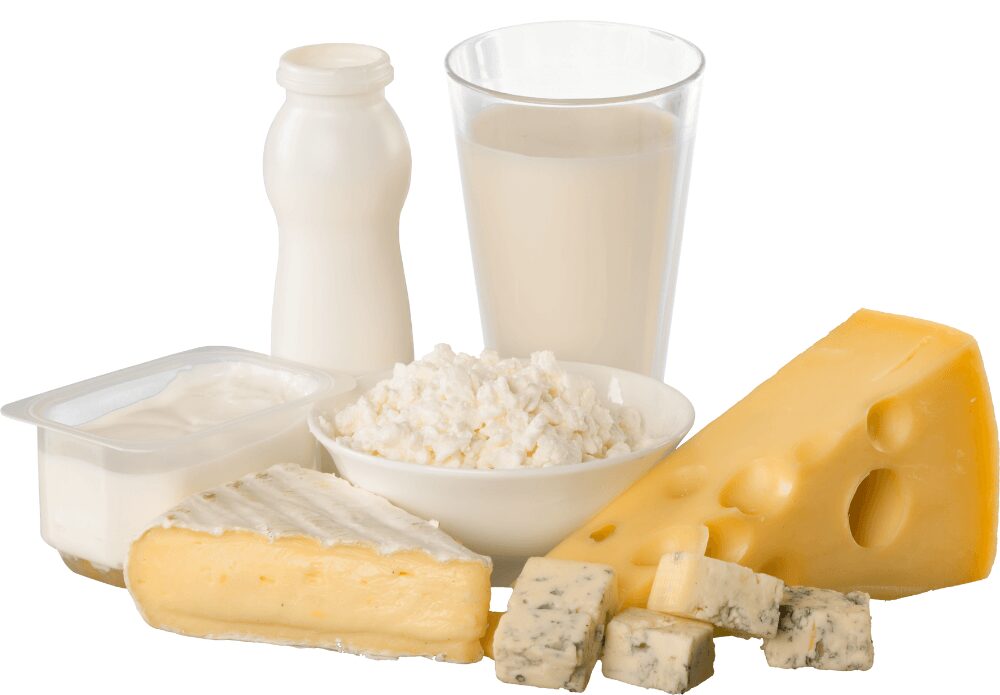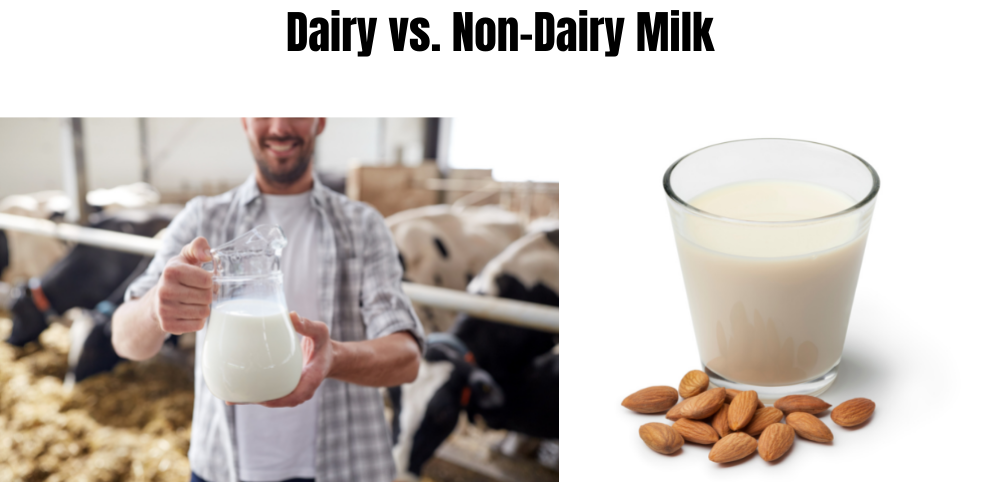Does Milk Make You Fat?
Have you ever wondered if dairy foods are fattening?
Milk is delicious food that has been enjoyed for centuries. It’s also one of the most popular sources of dairy, so it’s important to know if dairy foods are as fattening as we may think.
So, does milk make you fat? No.
Anyone who’s been told to cut back on milk because it’s fattening can breathe a sigh of relief. Evidence shows that eating dairy foods every day could have the opposite effect and actually help you lose body fat.
What Really Makes You Fat?
The bottom line is, taking in excess calories- above your daily calorie target, over the course of time, makes you fat.
CICO is an acronym for “calories in, calories out.” The theory behind it is that as long as you consume fewer calories than you burn each day, you will lose weight.
CICO is one of the most popular and oldest diet theories around, and it has been proven to be the only way to lose weight sustainably.
How does milk help you take in fewer calories, to stay within your CICO guidelines?

Milk Is High In Protein
Milk is high in protein, which may help with fat loss by boosting metabolism and making you feel fuller after meals, resulting in decreased daily calorie intake.
One cup of milk provides 8 grams of protein, which is the same amount found in an egg or 1/3 of a scoop of whey protein powder.
One of the biggest challenges is losing weight is eating between meals (which often puts you over your daily calorie limit).
Research shows that protein-rich foods such as milk are effective in suppressing ghrelin (the “hunger hormone”) and creating feelings of fullness.
If you can’t resist snacking, or your cravings and hunger keep you awake at night, it’s important to find ways of increasing your satiety (feeling full) between meals. A glass of milk as your snack fits the bill.
Protein-rich foods help build muscle mass
High-protein foods help build muscle mass and contribute to the growth and maintenance of our bodies. Building muscle increases your metabolic rate, which means you burn more calories throughout the day.
Protein-rich foods also help prevent muscle loss which can help you maintain your metabolic rate.
Milk Is High In Calcium
Milk is a great source of calcium, and many people drink milk (or eat cheese) in order to get their daily calcium. Milk contains high levels of the mineral – it has 300mg in a single glass, and that’s almost 1/5th of your recommended daily allowance!
Calcium is an important mineral for the body. It helps keep the bones and teeth strong and can also help with blood clotting. Getting enough calcium is especially important for women, who need it to help prevent osteoporosis.
How Does Calcium Help You Burn Fat?
Calcium helps you burn fat because suppresses your appetite by increasing serotonin levels in the brain. Serotonin is a “feel-good” neurotransmitter that controls mood, sleep, appetite, and other bodily functions.
Calcium also helps you lose weight by increasing the amount of fat your body burns for energy. This happens because calcium is an important part of many enzymes in cells throughout your body. Enzymes are proteins that help the body’s chemical reactions happen faster.
Last but not least, calcium burns fat by being a part of the process that pulls stored body fat out of your cells so it can be burned for energy.
Whole Milk Vs. Low-Fat Milk
There are a lot of pros and cons to both whole milk and low-fat milk. Let’s take a look at some of the most important points:
Whole Milk Pros:
- Contains more nutrients than low-fat milk.
- Has a creamier, richer flavor than low-fat milk.
- May help you lose weight due to the protein + fat content keeping you fuller longer, and suppressing your appetite.
Whole Milk Cons:
- Contains more fat and calories than low-fat milk.
- Some people may be lactose intolerant or sensitive to dairy products.
- May not be appropriate for people who are trying to lower their cholesterol levels.
Low-Fat Milk Pros:
- Contains less fat and calories than whole milk.
- Suppresses your appetite by being lower in calories and fats – although it is not as effective at this as full-fat dairy products.
- Is easier on the stomach for those who are lactose-intolerant or have a mild sensitivity to dairy products. (Lactose-free options are available at your grocery store).
Low-Fat Milk Cons:
- Contains fewer nutrients than whole milk.
- Doesn’t have as rich a taste as whole milk, for some people.
- You might need to consume more low-fat milk vs. whole milk in order to get the same amount of protein and calcium that you would from just one cup of whole milk.

Dairy Milk vs. Non-Dairy Milk
There are a lot of different types of milk on the market these days, from regular cow’s milk to almond milk, soy milk, and even goat’s milk.
So which is the best type of milk? Let’s take a look:
Dairy milk, such as cow’s milk, goat’s milk, and sheep’s milk, are all high in calcium and other nutrients. They also have a good balance of protein, carbs, and fat.
Almond milk, soy milk, and other plant-based milk are lower in protein and calcium than dairy milk. They’re technically not even milk. However, they are often fortified with these nutrients, so they can be an ok replacement if you can’t digest dairy.
In our opinion, dairy milk is the way to go. Milk doesn’t make you fat. And, you get high-quality protein and calcium for your muscle-building and appetite-suppressing needs to lose body fat.
Drinking Milk To Burn Body Fat
If you want to give milk a try in order to help burn body fat, experiment with different types of milk until you find one that works best for your diet plan and lifestyle! You may even enjoy the benefits of drinking kefir or Greek yogurt, which are great for you due to their probiotic content.
Remember, you can use milk on its own, or add it to shakes and other foods in order to get an extra boost of nutrients.
Powdered milk is also available if you want a quick, easy way to get your calcium without needing the rest of the ingredients that make up “milk”.
Once you work it into your routine, drinking milk every day may be the key ingredient in helping you reach your weight loss goals!
